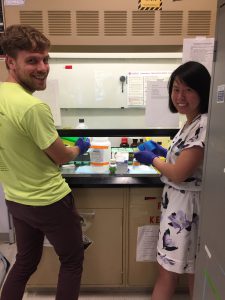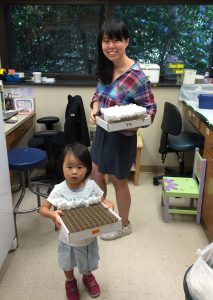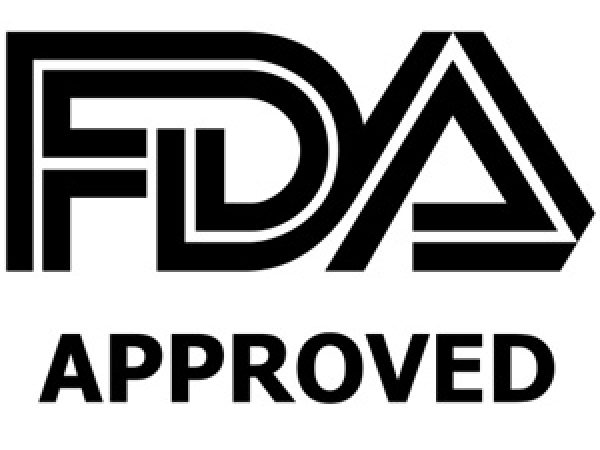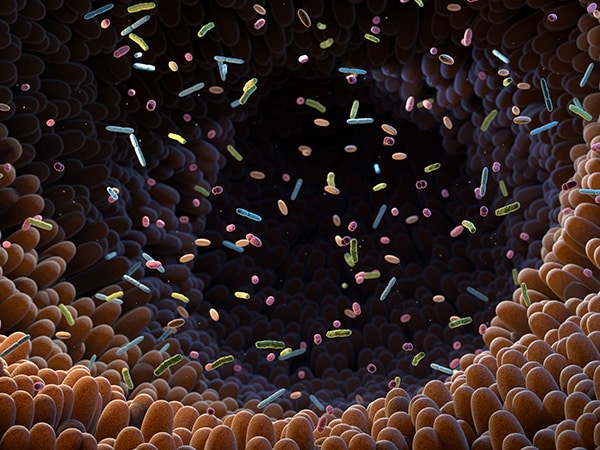Inspired By Her Mother, AACR Grantee Embarks on a Career in Cancer Research
Wen-Yang Lin, PhD, MS, currently a postdoctoral fellow at Stanford University and the recipient of the 2017 AACR-Genentech Fellowship in Lung Cancer Research, is a relative newcomer to the field of cancer research. Previously, she had studied biomedical engineering at the University of California, Los Angeles and neuroscience at the University of Washington, where her PhD thesis concerned growth control in Drosophila sensory neurons. During this time, Lin’s mother was diagnosed with stage II ovarian cancer. “My mother had been through several rounds of surgeries, tried different combinations of chemotherapies and radiation therapies,” Lin recalls, “but she still passed away only five years after the diagnosis.”
As she witnessed her mother’s experiences with cancer, Lin came to recognize the urgent need for cancer research that improves the lives of patients. “It became clear to me how little we understand about cancer development,” she says, “and what a huge clinical impact better genotype-specific targeted treatment would have had.” So upon finishing her PhD, she left fruit flies behind and joined Dr. Monte Winslow’s lab at Stanford, where the focus is on using genomic methods and in vivo models to better understand the mechanisms of cancer progression and metastasis.

Wen-Yang Lin’s work at Stanford University focuses on creating a pharmacogenomic map of lung cancer.
Lin’s current project, funded through her AACR-Genentech Fellowship, is the creation of a pharmacogenomic map of lung cancer. “Despite advances in clinical cancer genome sequencing and the development of many targeted therapies,” Lin advises, “understanding the relationship of tumor genotype to therapeutic response remains one of the most important gaps in translating available drugs into effective cancer treatments.” She has chosen lung cancer for her map because it is genomically diverse and leads to more deaths than the next three most common cancer types combined. Indeed, lung cancer accounts for 25 percent of all cancer deaths and has a dismal five-year survival rate of just under 19 percent.
Utilizing CRISPR-Cas9 and molecular barcoding, Lin has developed a novel system to investigate the relationship between multiple lung tumor genotypes and therapeutic response in mouse models. “A major limitation of existing genetically engineered mouse models is the relatively small number of different genotypes that can be generated,” Lin explains, “but we overcame this barrier by using the CRISPR-Cas9 system, a genome-editing tool that allows us to modify somatic DNA sequences, to generate many different genotypes of lung tumors in one single mouse.” Lin tags each tumor genotype with a unique barcode, a short DNA sequence, to allow for the subsequent quantification of cancer cells in the induced tumors with next-generation sequencing.
With this innovative mouse model Lin can perform pre-clinical/co-clinical trials of targeted cancer therapies across multiple lung cancer genotypes in parallel. The goal is to uncover genotype-specific responses to various drug therapies, which will then be used to generate the pharmacogenomic map. This map could then eventually help match cancer patients with the most effective therapies for their lung cancer genotype, thereby impacting clinical care.
“This flexible system we are developing can incorporate additional targeted cancer drugs and other therapies, including immunotherapies,” Lin points out, “and can be adapted to other cancer types.” She lists pancreatic cancer, ovarian cancer, bladder cancer, prostate cancer, and sarcoma as viable candidates for her cost-effective and time-efficient system. Ultimately, Lin has hopes that her system could become a mainstay of translational cancer biology.
Lin is now over a year into the two-year term of her AACR-Genentech Fellowship and is making considerable progress toward her research aims. She credits the fellowship with allowing her to pursue her innovative and exciting project. “This award allows me to integrate my past experiences with the expertise of my mentor,” she says, “and push forward my work, which I hope someday will directly benefit cancer patients.”
November is Lung Cancer Awareness Month.




